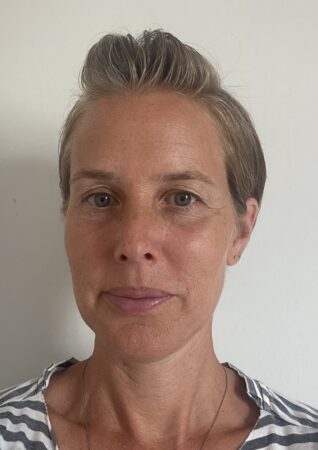Home News & Views The Inspire Improvement Fellowship – small steps for change
The Inspire Improvement Fellowship – small steps for change
 Kati Scott – Clinical Team Lead, St Christophers Hospice, London
Kati Scott – Clinical Team Lead, St Christophers Hospice, London
When I applied for the FoNS Inspire Improvement Fellowship my hope was to develop the skills and confidence to literally ‘inspire’ my team, enable it to be greater than the sum of its parts. I knew things needed to be different, the team was over-worked, burnt out and exhausted by a cacophony of changes and yet in some ways more change was what was needed. Hopefully for the better.
What I hadn’t expected was to have some of my ideas underpinning successful leadership be so challenged. I had never really considered the impact of a workplace culture on the behaviours, morale, confidence and engagement of my team. I knew we were all stakeholders in this culture but hadn’t realised that my working longer and longer hours could be negatively contributing to it rather than providing support in the way I had intended. Rather than being collaborative our team meetings had always been chaired by one of the team leaders, an opportunity to pass on information from higher up the managerial food chain, update everyone on changes, invite feedback from others in a very structured way. Even when feedback / ideas were sought on various topics I now realise there was a sense of the changes already being a fait accompli. Teaching isn’t the same as enabling or coaching – something I could definitely learn to be better at.
So how have things changed so far round here? Like the Chinese proverb outlining the butterfly effect. This proposes “the flapping of the wings of a butterfly can be felt on the other side of the world” hopefully small actions are capable of generating large changes – eventually.
The FoNS philosophy of caring cultures now permeates my thoughts every day at work. How can we really understand what makes us all tick if we don’t ask the questions – how are you today? What matters to you? What is your purpose? These may appear simple on the face of them however I didn’t find them that easy to ask. I had often asked ‘how are you doing’ – what I hadn’t realised was that this may have been interpreted as ‘what are you doing … are you working hard enough?’ rather than a genuine supportive enquiry. I now try and take time to catch up, however briefly, with every member of the team as often as I can.
We had a team workshop in December asking the question – what does a good day at work look like? In teams we discussed what we had the power to change that may help create more good days. We also deliberated over the development of a more ‘person-centred’ clinical assessment and the impact this may have not only on our patients and families, but also on our sense of clinical autonomy and consequently improve job satisfaction. Everyone contributed, their voices were heard and ideas were given thoughtful consideration – the feedback was positive with everyone feeling valued. Since the workshop some new processes are being trialled, rota changes have been made and although other ideas need further understanding they haven’t been ignored.
Going forward we hope to launch monthly team well-being sessions giving us all an opportunity to check in with one another, perhaps create our own team vision, questioning what it’s like for us all to work here and why we chose to at the very beginning. Considering what is it like to walk in our patients’ shoes and we may even have an opportunity to debate palliative care current affairs. The format is fluid and I hope it will eventually be led by the team themselves, contributing themes and ideas and better ways of supporting one another.
These may be baby steps but the journey has certainly begun, if we all flap our wings just imagine what can be achieved.
Comments are closed.

